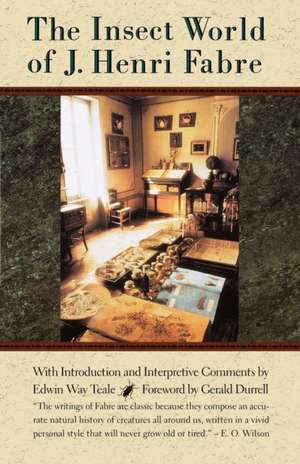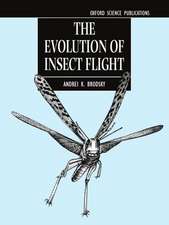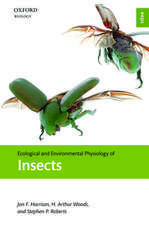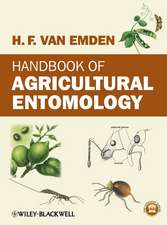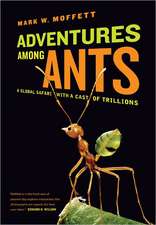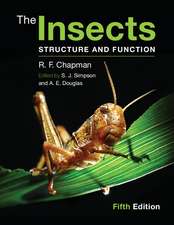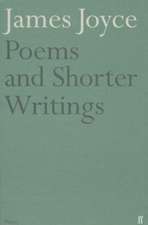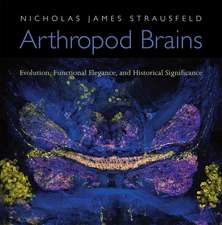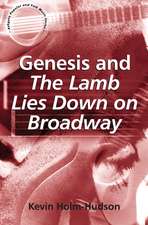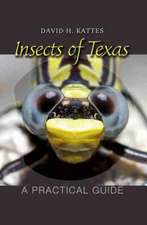The Insect World of Fabre: Concord Library
Autor Jean-Henri Fabre, Edwin Way Teale Gerald Malcolm Durrellen Limba Engleză Paperback – 31 mar 1991
Preț: 181.39 lei
Nou
Puncte Express: 272
Preț estimativ în valută:
34.71€ • 36.24$ • 28.73£
34.71€ • 36.24$ • 28.73£
Carte tipărită la comandă
Livrare economică 04-18 aprilie
Preluare comenzi: 021 569.72.76
Specificații
ISBN-13: 9780807085134
ISBN-10: 0807085138
Pagini: 356
Dimensiuni: 140 x 216 x 20 mm
Greutate: 0.45 kg
Editura: Beacon Press
Seria Concord Library
ISBN-10: 0807085138
Pagini: 356
Dimensiuni: 140 x 216 x 20 mm
Greutate: 0.45 kg
Editura: Beacon Press
Seria Concord Library
Notă biografică
French scientist, entomologist, and novelist Jean-Henri Casimir Fabre is renowned for the engaging tone of his best-selling books about insects. Fabre was born on December 21, 1823 in Saint-Léons, Aveyron, France. Due to his family's lack of resources, Fabre learned most things on his own. Fabre was a well-liked professor, botanist, physicist, and chemist. Though many regard him to be the founder of modern entomology, he is arguably best recognised for his discoveries in the discipline of entomology, the study of insects. His wonderful teaching skills and style of writing about insects' lives have contributed much to his ongoing appeal. Fabre wrote in an entertaining, conversational tone while combining what he called ""my quest for scientific truth"" with astute observations.
Charles Darwin, who referred to Fabre as ""an unequalled observer,"" was affected by him in his subsequent writings. Fabre was always wary of ideas and systems, therefore he maintained his scepticism regarding Darwin's theory of evolution. He arranged pine processionary caterpillars to make a continuous loop around the edge of a pot in one of his most well-known experiments.
On October 11, 1915, he died. Alexander Teixeira de Mattos' thorough translations of his work from 1912 to 1922 helped make him well-known in the English-speaking world.
Recenzii
"The writings of Fabere are classic because they compose an accurate natural history of creatures all around us, written in a vivid personal style that will never grow old or tired." —E.O. Wilson
"This is beautiful, knowledgeable prose." —Annie Dillard, from On Nature
"Fabre could write about his discoveries simply and beautifully so that even people who did not understand anything about entomology could appreciate them." —Gerald Durrell
"What makes Fabre interesting as a writer is his unabashed emotional involvement in the behavior of his subjects. He is no cold, aloof observer, but a man who is at once fascinated and repelled by the gap between human values and reason and the blind, amoral strategies or instinct. His descriptions of how insects conduct their lives read at once as factual natural history and moral parables—but parables modern in their recognition that there are no parallels for human ethics in nature." —Robert Finch and John Elder, from The Norton Book of Nature Writing
"This is beautiful, knowledgeable prose." —Annie Dillard, from On Nature
"Fabre could write about his discoveries simply and beautifully so that even people who did not understand anything about entomology could appreciate them." —Gerald Durrell
"What makes Fabre interesting as a writer is his unabashed emotional involvement in the behavior of his subjects. He is no cold, aloof observer, but a man who is at once fascinated and repelled by the gap between human values and reason and the blind, amoral strategies or instinct. His descriptions of how insects conduct their lives read at once as factual natural history and moral parables—but parables modern in their recognition that there are no parallels for human ethics in nature." —Robert Finch and John Elder, from The Norton Book of Nature Writing
